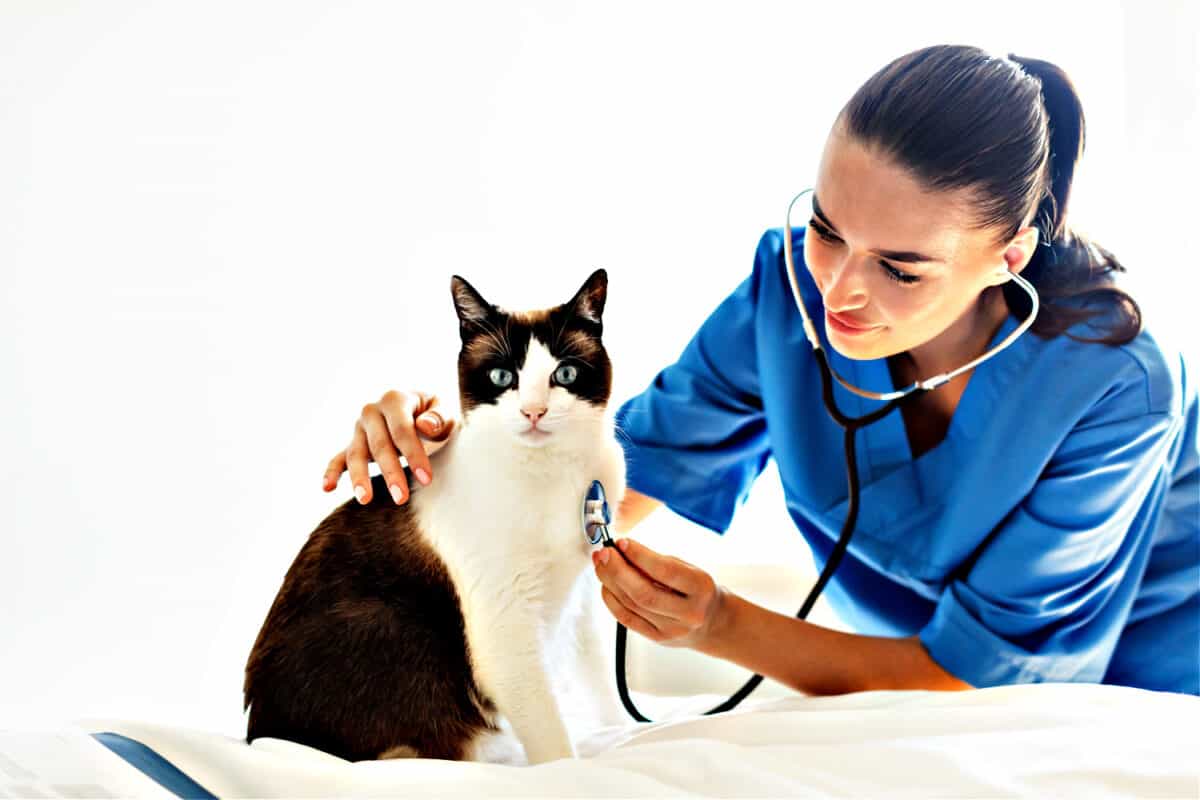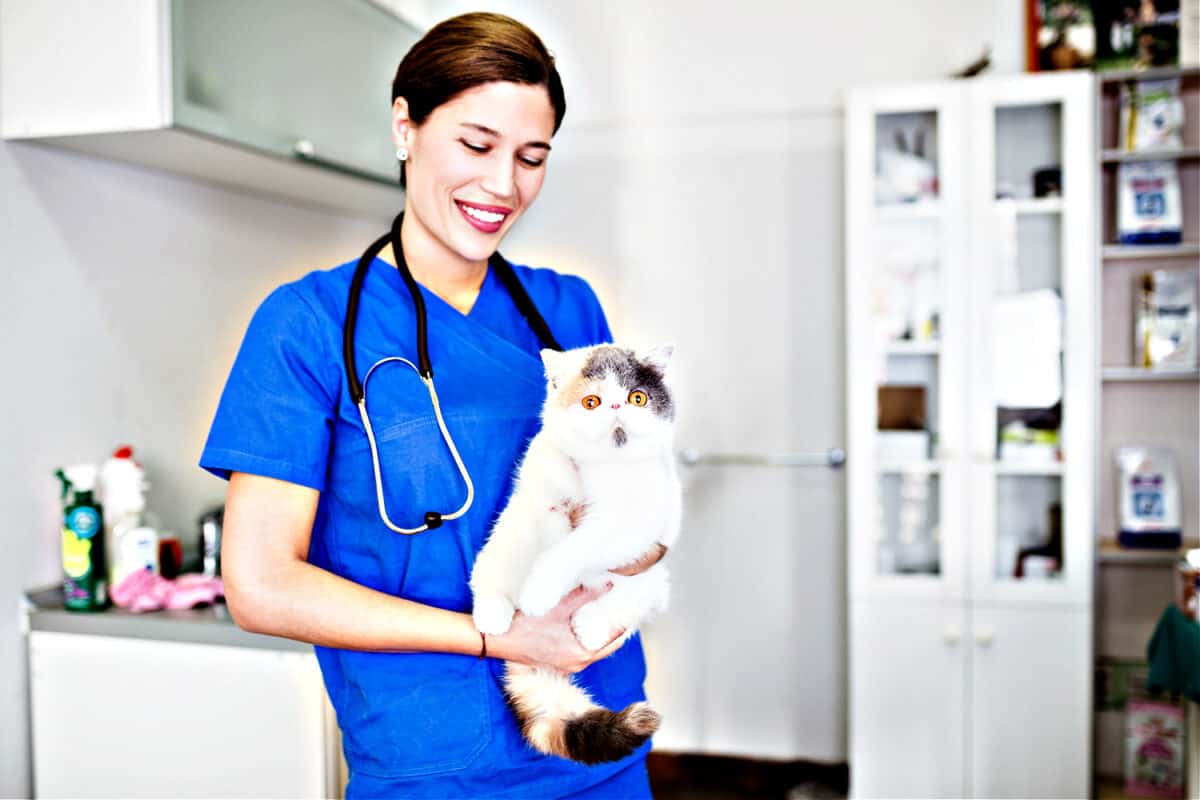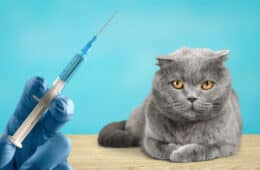Caring for your beloved feline friend involves more than just feeding and playing. It means taking proactive steps to ensure her health and happiness throughout her life. Whether you're a new cat owner or have had your furry companion for years, there's always something new to learn about cat health care.
In this article, you'll discover essential information about vaccinations, routine vet visits, emergency planning, and the importance of being an engaged and informed cat parent.
Get ready to equip yourself with the knowledge and tools needed to make your cat's life as joyful and comfortable as possible. Read on, and let's embark on this journey together.

Preparing for Your Cat's Health: Communication and Planning
Taking care of your cat's health is an essential part of being a responsible pet owner. It involves more than simply providing food and shelter; it's about actively engaging in her well-being and making preparations for the unexpected.
One critical aspect of caring for your cat is understanding her vaccination needs. Speak openly with your veterinarian to determine the types of vaccines that are suitable for your cat. Knowing what she requires is the first step towards a long and happy life.
Equally important is planning for unforeseen emergencies. It might be wise to set aside some money each month for unexpected vet visits. By doing this, you can create a safety net that might help you avoid stressful financial situations should an emergency arise.
Finally, never hesitate to ask your veterinarian any questions you may have about your cat's health. There's no such thing as a dumb question, especially when it concerns the well-being of your beloved pet. Open communication with your vet is key to understanding and managing your cat's health needs.
Cat Vaccines: A Guide for Cat Owners
Taking proper care of your cat means being informed about her vaccination needs. From the first day you bring her home, it's essential to understand what goes into maintaining her health.
This section offers a step-by-step guide to help you navigate the world of cat vaccines.
Bringing Your Kitty Home
When you first bring your cat home from the shelter, she's likely up-to-date with her necessary vaccines. But what exactly was in that needle? If you don't know, it's time to take action.
Talk Candidly with Your Vet
Your veterinarian is a valuable resource. Ask them about the specific vaccines your cat has received. They can explain what each one does and why it's essential.
Connect with Other Cat Owners
Sometimes, the experience of fellow cat owners can be just as informative. Discuss vaccinations with other cat lovers. They might have insights and advice that can guide you.
Explore Information Online
The internet is full of information on cat vaccines. Research various sources to get a broader understanding. Look for reputable websites and vet-approved content.
Consider Your Cat's Specific Needs
Not all cats need the same vaccines. Factors like age, risk level, living conditions, and other health concerns can determine what your cat really needs.
Learn about these factors to tailor the vaccination plan to your cat's unique situation.
SIGN UP FOR THECATSITE'S EMAIL UPDATES >
Your Guide to Regular Vet Visits for Your Cat
Keeping your cat healthy means understanding when and why to take her to the vet. Whether it's an annual checkup or more frequent visits for outdoor cats, here's a comprehensive guide to your cat's health care needs.
Annual Visits for Young and Healthy Cats
Young, healthy cats (kittens through 8 to 10 years old) shouldn't need to visit the vet more often than annually unless other health problems arise. But pack as much into that annual visit as you can.
Get Vaccination Boosters
Your cat needs specific vaccinations. Get the required boosters during the annual visit.
Perform a Fecal Exam
Bring a fresh fecal sample. The vet can test for parasites like Tapeworm or Round Worms.
Frequent Visits for Outdoor Cats
If your cat enjoys the great outdoors, she needs more care:
Regular Worming and Anti-Flea Medications
Outdoor cats need the vet at least 4 times per year. Regular worming and anti-flea treatments are essential.
Flea Preventative Measures
Ask for spot-on Flea preventative, even if your cat stays inside. If fleas are common in your area, it's a must.
Consider Heartworm Medication
If mosquitoes are a problem, discuss heartworm medication with your vet.
Comprehensive Physical Examinations
A good vet visit includes a thorough check:
Check Body Tone and Skin Condition
The vet should assess the skin, muscles, and fur.
Examine Ears and Mouth
Ask the vet to look inside the ears and mouth. Early detection can prevent infections and teeth problems.
Monitor Temperature and Weight
The vet should take your cat's temperature and record the current weight.
Blood and Urine Tests
Consider having the vet take blood and urine samples. This helps establish normal values, or "baseline."
Tailoring Vet Visits to Your Cat's Needs
Your cat's health is your responsibility. Tailoring vet visits to her specific needs ensures she receives the right care. Whether it's an annual checkup or more frequent visits, understanding what each visit should include makes you a proactive and informed cat owner.
Remember, the best care is preventive care, and regular vet visits play a vital role in keeping your cat happy and healthy.

Mission Responsible: Your Comprehensive Guide to Responsible Cat Care
So as not to overlook anything important as a pet owner, ensure a fruitful appointment with your vet by remembering to do each of the following:
- Make a list of all your questions prior to the visit.
- Discuss the pros and cons of vaccinations.
- Take in a fecal sample with you for testing of parasites.
- Insist on a complete exam, including swabbing of the ears.
- Have the kitten/cat tested for all known diseases.
- Discuss spay or neuter options with your vet.
Cats who have reached the age of 6 months should also be assessed for sexual maturity and the decision to spay or neuter should be discussed with your vet at this time.
With the pet overpopulation crisis currently in epidemic proportions, the ONLY responsible thing to do is alter your cat.
Your cat will be happier and healthier and you will get a good feeling from knowing you have joined what I like to call “Mission Responsible”.
As pet owners are becoming more aware of the dangers of allowing cats to venture outside, we find that as a benefit, our beloved companions are living longer. But sadly, with age comes health issues.
Cats who have reached the age of 8 to 10 years old are considered geriatric and should see the vet at least twice per year.
The vet should perform the same thorough exam on older cats as he did on the younger ones, but you will also want to have him take blood and urine samples for outside laboratory analysis.
Make certain to discuss any changes in your cat’s habits at this visit and if it helps, remember to write down your concerns beforehand so you can cover everything.
Cat Health Care Essentials: Wrapping It Up
Taking care of your cat means more than just feeding and playing; it's a commitment to their overall well-being.
From vaccinations to regular check-ups, understanding your cat's health needs sets the stage for a happy and fulfilling life together.
- Plan Ahead: Vet visits should be well-prepared, with a list of questions and necessary tests in mind.
- Understand Your Cat's Needs: Different ages and lifestyles demand unique care. Be proactive and informed.
- Join the Mission of Responsible Ownership: Embrace your role as a responsible cat owner. Your cat's health and happiness depend on it.
With the right approach, the mission of maintaining your cat's health becomes a rewarding journey.
Your beloved pet deserves the best, and this guide is a step toward ensuring that they get just that. Happy caring!
SIGN UP FOR THECATSITE'S EMAIL UPDATES >
You might also like to read:
Should I Give My Cat Probiotics?
Introduction To Feline Diabetes
Written Contributions by Gaye Flagg
Comments? Leave them using the comment section below. Questions? Please use the cat forums for those!
Note: We may get commissions for purchases made through links on this page.


![Ringworm in a cat, How to deal with ringworm in cats [Inc. The Housecleaning Regime]](https://thecatsite.com/c/wp-content/uploads/2014/09/ringworm-260x170.jpeg)
